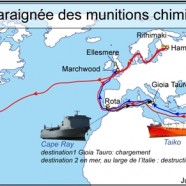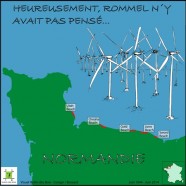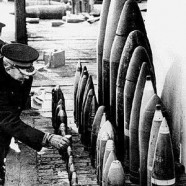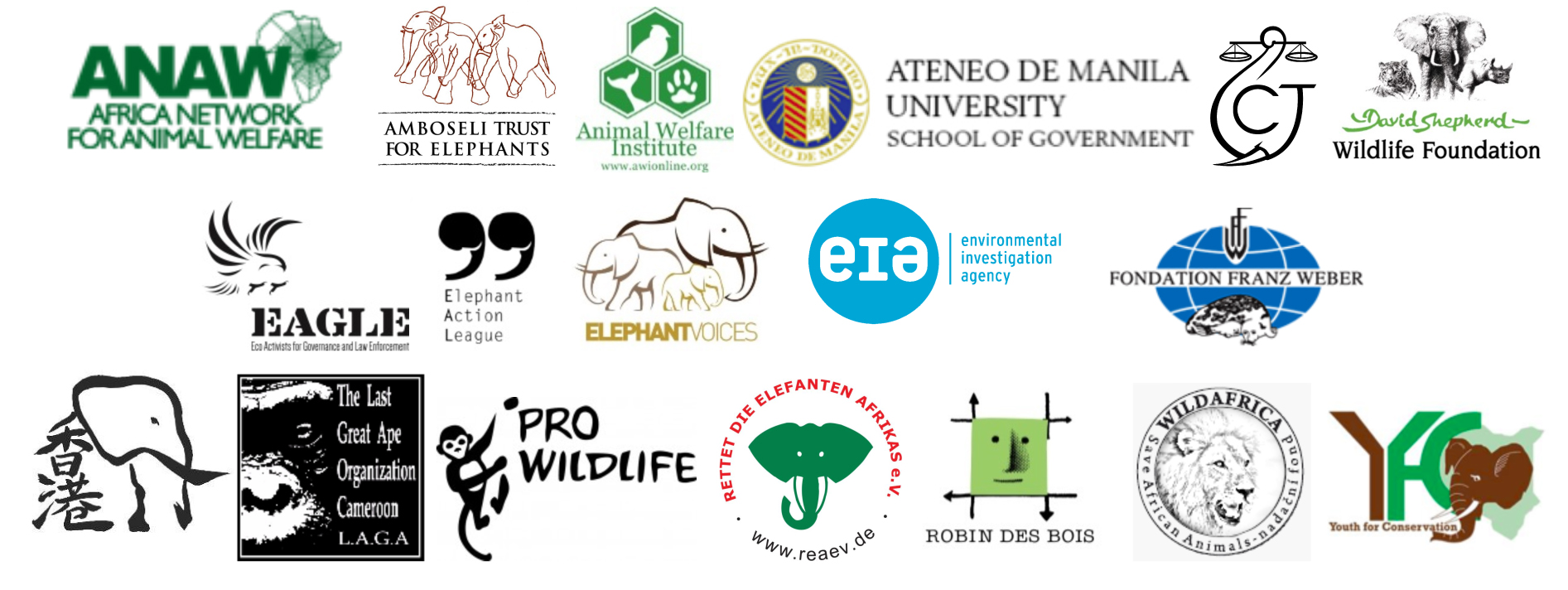Destruction of Syrian Chemical Weapons n°4
Since the beginning of the year two vessels, loaded with agents for chemical weapons, have been rocking and rolling in the Eastern Mediterranean Sea. There exact location is confidential. The Ark Futura is a 180 meter long RoRo ship operating under the Danish flag. The crew is multinational. The Taiko is a 262 meter long RoRo ship operating under the Norway International flag. In the case of a collision or fire this type of vessel, which can be likened to a floating parking lot, is very vulnerable and will sink quickly.
Destruction of Syrian Chemical Weapons n°4
Since the beginning of the year two vessels, loaded with agents for chemical weapons, have been rocking and rolling in the Eastern Mediterranean Sea. There exact location is confidential. The Ark Futura is a 180 meter long RoRo ship operating under the Danish flag. The crew is multinational. The Taiko is a 262 meter long RoRo ship operating under the Norway International flag. In the case of a collision or fire this type of vessel, which can be likened to a floating parking lot, is very vulnerable and will sink quickly.
The horizon and the D-Day beaches threatened by an industrial area
The maritime industrial area will cover 50 km2 and will be spiked with 75 monsters, iron and non recyclable composite made and 150 m in wingspan. They will peak 180 m above sea level. The seabed will be drilled by underpinning stakes. The marine sediments will be occupied by a mess of electrical wires. Each machine will weigh at least 1500 tonnes. No wind turbine of this type and power – 6 MW – has ever proved in real conditions its supporting capacity and productivity.
These outrageous projects of construction of wind turbine parks off Noirmoutier, Saint-Nazaire, Saint-Brieuc, D-Day beaches, Fécamp and Le Tréport are promoted and operated by Alstom, Areva and EDF, the very same players which have imposed the nuclear miracle upon France. Caution is the order of the day.
Inventory of War Remains of Atlantique-Manche Regions from January 1, 2008 to December 31
Inventory of War Remains
Atlantique-Manche Regions
January 1, 2008 – December 31, 2013
Special D-Day Commemoration
June 2014
Sommaire
Introduction
Weapons in the inventory
Sanitary and environmental risk
Inventory of War Remains from January 1, 2008 to December 31, 2013 with maps:
Europe – An Open Market For The Ivory Trade ?
Conservationists urge the EU – the biggest exporter of so-called “old” ivory – to ban all ivory trade
Brussels/2 June 2014. On the eve of inter-governmental meetings in Brussels and Geneva in June and July to debate the fate of elephants, a group of conservation organisations requests all EU governments to urgently halt all commerce in ivory and to destroy all remaining stockpiles. New data shows escalating exports of ivory from the European Union to China and worldwide. The organisations warn that any legal loophole in ivory trade creates the opportunity to launder poached ivory into “legal” trade and thus fuels the killing of elephants.
French Riviera Pensioners Endangering Elephants
France, the first European country to destroy its illegal ivory stockpile – 3.4 tonnes in February 2014 – has, at the same time, become a hub for international trade in ivory. Through the intermediary of the Cannes Auction House, raw or carved elephant tusks from 42 elephants were put up for auction on March 8th and May 3rd 2014. Together they weigh 1.4 tonnes. If we believe the discourse of the Cannes Auction House director the French Riviera is populated by old expatriates who worked in Africa. They returned to France with their arms full and wish to increase their pensions and spend their days in tranquillity overlooking the Mediterranean Sea, far from the AK47 bullets harassing African elephants.
“On the Trail” n°4
Here now the 4th edition of « On the Trail »
Information and analysis bulletin on animal poaching and smuggling.
1st January – 31th March 2014.
112 pages, 468 events, 352 information sources.
Whales and marine mammals, pages 12 to 14
All dials are in the red. On the endangered species market prices are soaring. China and the world exotic pet trade are weighing heavily. The red-fronted parrot in Congo smuggled by Blue Helmets are sold for 800 US$ on Internet. Rhino horns reach 100,000 US$/kg, leopard skin more than 30,000 US/$. Mumbai golden youth gets high on cobra venom (180,000 US$/l). Isilo, the elephant who became a symbol of South Africa, is dead. His 2 tusks worth 600,000 US$ have disappeared. Poachers were the first to find his body by spotting the vultures. Suspicion lingers. Daytime rangers become night-time poachers. Prices go wild, the violence does also. Animals, thieves and rangers fall. Traffickers kill each other like traffickers of a drug cartel. Gangs rule, gangrene thrives. This is war. Justice is incoherent. From severe punishment to set an example to a mere bail, justice sometimes goes astray. Traffickers are often very young. Poachers ride BMWs. Killing methods are both modern and archaic.













